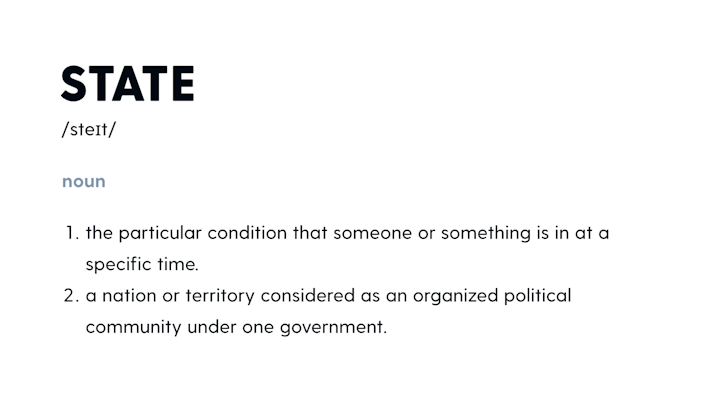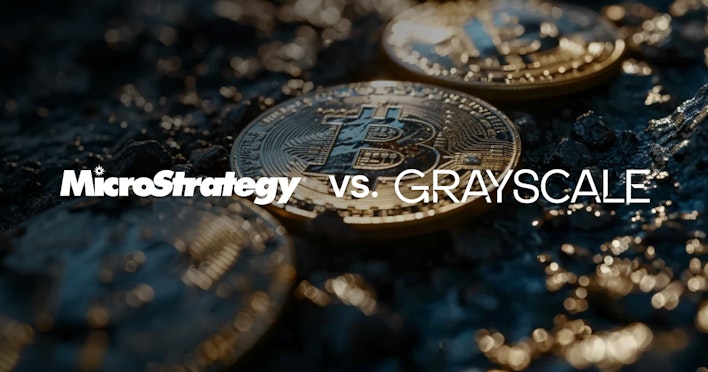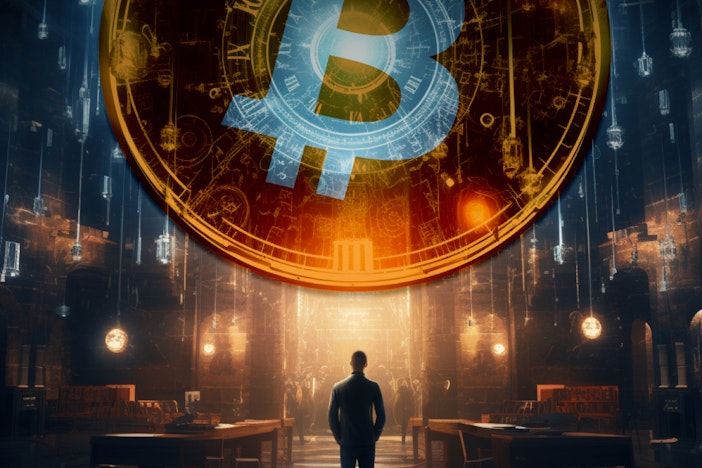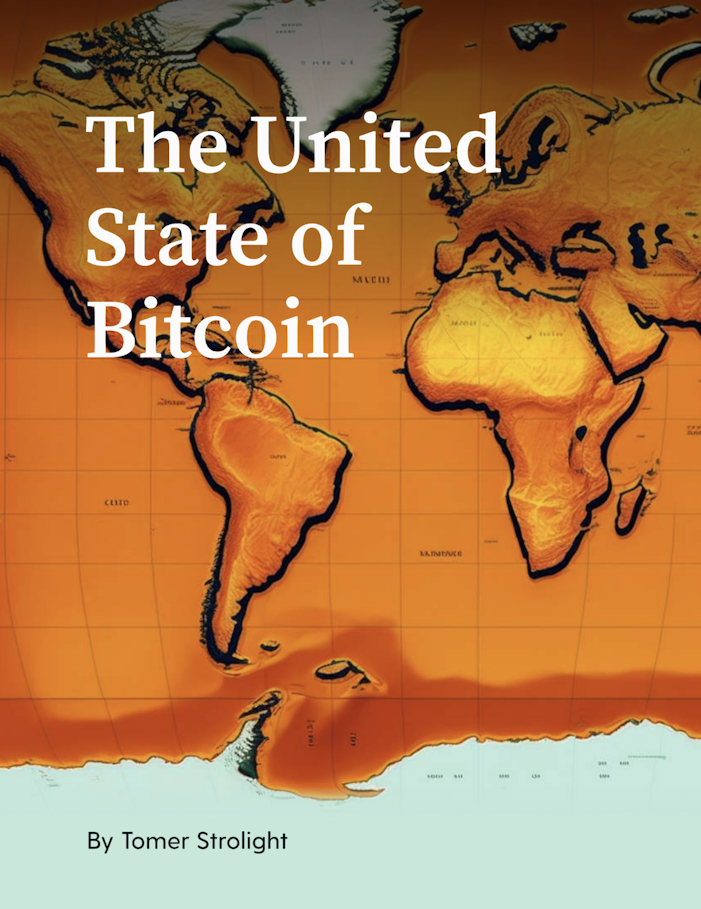The United State of Bitcoin
Where the US constitution declared that we are all equal, Bitcoin, within its context of money, ensures we are all treated equally, under completely transparent rules.

This article is the third and final part of a series exploring Bitcoin through political analogies. The first two parts, “A New Separation of Powers,” and “A New Peaceful Transition of Power” compared how Bitcoin offers new solutions to systemic risks encountered in political systems. This article contemplates something different — how Bitcoin pursues the goals set out in the famous preamble of the US Constitution, in particular, forming a perfect union between all people who participate in it.
Swan Private Insight Update #21
This report was originally sent to Swan Private clients on March 14th, 2023. Swan Private guides corporations and high net worth individuals globally toward building generational wealth with Bitcoin.
Benefits of Swan Private include:
- Dedicated account rep accessible by text, email, and phone
- Timely market updates (like this one)
- Exclusive monthly research report (Insight) with contributors like Lyn Alden
- Invitation-only live sessions with industry experts (webinars and in-person events)
- Hold Bitcoin directly in your Traditional or Roth IRA
- Access to Swan’s trusted Bitcoin experts for Q&A
The noun ‘state’ has two meanings:

The first definition applies broadly to practically anything. What’s your current state of mind? It changes all the time after all. What state of matter is some body of water in the atmosphere taking? Is it a gaseous cloud, liquid rain, or solid crystal snowflakes? What’s the state of a particular patient in a hospital? Are they in stable, serious, or critical condition?
With respect to Bitcoin this definition of state applies very specifically to describe one thing in particular. That is, what data exists in Bitcoin’s record, also known as its blockchain. This state of Bitcoin must be updated regularly as people spend and receive bitcoin, and everyone in the world running Bitcoin must always be in perfect agreement about this state of affairs.
The second definition of state applies only to geographic areas and how people in those areas deal with one another.
This article will compare ideas behind the state of Bitcoin and the state known as the United States because, it turns out, both pursue some very similar goals, but in radically different ways.
Let’s begin with a big question — why do these exist?
We the People, of the United States, in order to form a more perfect union…
the opening phrases of the Constitution of The United States of America
Bitcoin: A Peer-to-Peer Electronic Cash System
the title of bitcoin.pdf, also known as “The Bitcoin White Paper.”
Both Bitcoin and the United States have their “founding documents.” And, both these documents clearly state who and what the thing they constitute is meant to serve and do.
In the case of the United States the who is “We the People.” These unforgettable three words appear not only as the first ones but they are also written so much larger than any others in the document that clearly they are intended as being of prime importance. It does not say “We the Rulers” or “We the Elites” or “We the Experts.” Nor does it say “We the Corporations” or “We the Politicians” or “We the Appointed.” Nor, moreover, does it say “I the President” or “I the King” or “I the Dictator.” It treats all people as equals in the founding of America, and goes on to declare its purpose is to provide “Blessings of Liberty to ourselves and our Posterity” indicating it is also for all people who will follow. This constitution then proceeds to state (this being the verb “state”) how the mechanisms of America’s federal government are to operate, laying out the branches, duties, and processes by which each is to function.
This famous preamble, beginning with “We the People” does not limit its ambitions only to being for all people, nor merely preserving blessings of liberty. It also lists several other purposes. These are 1) to establish justice, 2) to ensure domestic tranquility, 3) to promote the general welfare, and, first among all those listed goals, 4) to form a more perfect Union.
Credit for writing this historic document is attributed to James Madison, but it is clear he was writing it on behalf of the People, and that all the founding fathers of America were in agreement, since they all put their “John Hancock” on it, including, the actual “John Hancock” himself. It has been over 235 years since this great document was written, and enacted.
In contrast, unlike the US Constitution, we do not know who wrote Bitcoin’s white paper. Some person, or possibly even several people, going by the pseudonym “Satoshi Nakamoto” wrote it. However, just like the US Constitution, this document too invokes who the system is for and how it is meant to operate.
Bitcoin too is for all people. The white paper collectively refers to them as “peers” and when referring to them individually, as either a “party” or “participant.” Like the US Constitution’s invocation of People, the white paper invokes “Peer” right at its beginning and also in its largest lettering.
The white paper’s stated ambitions may sound far more humble than the US Constitution’s. It claims to propose a solution to something known as the “double-spending problem.” However, whereas Madison’s document is vague about the definition of its lofty, “more perfect Union, ” Satoshi’s paper actually provides a mechanism for all peers to form a completely perfect Union!
That perfect union is a worldwide agreement, by all participants, on the state (there’s that first definition again) of all the money in the world issued under this constitution’s rules. The Bitcoin whitepaper constitutes a money for all people, anywhere and everywhere on Earth, living both now and in posterity. It also constitutes a money wherein all have equality and justice in the use of this money (recall Madison’s “establish justice” from the US Constitution’s preamble). It also constitutes a money where all can transact in peace (recall Madison’s “domestic tranquility”). And it constitutes a money where all are united in complete, continuous, flawless, precisely identical agreement on the state of that money’s supply, its balances, and its rules — a completely perfect union. There is no more perfect union than the union of Bitcoin node operators’ view of the state of Bitcoin! All of us who run the software are in a “united state of Bitcoin.”
To many who study and observe the impact of Bitcoin, this then is a development of historic significance worthy of being considered potentially as important as the US Constitution. It is a new approach, albeit in a narrower domain, to create a perfect union, establish justice, provide tranquility between and liberty to its participants, both now and in the future, for posterity. These similarities to the US Constitution are noteworthy, to say the least.
There are differences, of course. Bitcoin can be for all the people (in the whole world), not merely those in the United States, but each one must choose for themselves to participate. Unlike a nation’s constitution, Bitcoin is not an all-at-once revolution governing all who live within specific geographic borders. It is a voluntary offering to be accepted gradually, and individually by each person who decides for themselves that this perfect union with other participants is desirable to them. This may be one reason why its historic significance can be easy to miss, especially in these early days when so few have understood and signed on.
The US Constitution was a big bang, accompanied by a violent uprising. Bitcoin, instead, has floated quietly into the world, almost silently at first. Bitcoin’s constitution was not a bloody battle that everyone had to immediately take a side on. It is a patient, gradual revolution. And Bitcoin does not require that anyone sign a document or publicly pledge their loyalty to it. It even permits anonymous participation.
Of course, the most dramatic differences between how Bitcoin operates and how the US government operates are that, first, in Bitcoin, all participants really are complete equals, and second, that the rules of Bitcoin are not open to different interpretations or frequent changes. There are no elected representatives in Bitcoin. There are only peers. There are no appointed judges. There are only nodes that judge everything by the same, impersonal, precise, mathematical rules. Very little, and nothing of consequence, is left to individual judgment or personal interests. You either go along with the rules, or you’re not in Bitcoin.
Is money really so important a thing that we should consider the creation of a money that forms a perfect union between its voluntary set of users as historic?
Let us first observe that money itself is the instrument that allows us to deal with each other peacefully in an advanced civilization. When we want something from someone we can either force it from them through violence or threats, or we can exchange something for it. Money is what allows for the latter — for trade. Money is an international language of peace when it is recognized by both people involved in a trade. Money allows us all to live in peace. It allows for commerce, for entrepreneurship, for production, for innovation, and for specialization. Money is one of the key things that distinguishes our species from the brute-force existence of wild animals — and also from other humans who don’t have access to money they can trust, and who must thus live in a condition (a state) where things are taken from them not through mutual, voluntary trade, but by unilateral use of force.
To ask if Bitcoin may be historic, let us imagine for a moment that we live in a world where everyone on Earth accepts and recognizes the same money. Imagine a world in which there are no national currencies. Of course, I want us to imagine that this money is Bitcoin. Wherever on Earth we go, no matter what language is spoken there, everyone accepts Bitcoin for their wares.
You can take it for granted that anyone knows the value of a satoshi and that so do you. This value is determined by two factors. The first factor is how much money one has. One who has very little values their money very highly, being extremely cautious and judicious with their spending of it. One who has lots may be more spendthrift. The second factor in valuing one’s money, is what one wants and needs that can be purchased with money.
If you and another person agree that some number of satoshis are worth what the other person wants for their wares, you can conduct a peaceful trade. If not, you both move on, in peace. Should you proceed with the trade and send them the money, then the whole world is united in agreement that this happened, although they do not need to know the details. They simply know that if this other person tries to spend those satoshis, they can, and if you try to spend them again (the double-spend problem), you cannot.
What’s so special about this? Isn’t this how money works now? Well, sadly, no. Not at all, in fact. In many parts of the world what is used as money inflates in supply so rapidly that there is no price stability, and even thinking of any trade you make requires mental gymnastics to consider when in the future you might spend the money you’re trading for wares you need. You don’t sell those eggs you have for money until you really need to use that money for, say, shoes, because the longer you hold the money, the less it buys.
Although the problem is not as bad in the West, it is still quite bad. Why do house prices rise so rapidly compared to incomes, let alone at all? The answer we often hear is that real estate is scarce. But what isn’t said, which is more accurate, is that real estate’s supply is increasing at a lower rate than the supply of money which can be directed to purchasing it. Banks are able to lend heavily against real estate, for long durations, and at relatively low-interest rates. This inflates the supply of money directed at real estate and drives the price up. Ultimately, the basic necessity that is housing becomes unaffordable for many people — an entire generation nearly — even in the wealthiest countries on Earth.
This would not happen in this world we are imagining where Bitcoin is the money everyone accepts. This is because bitcoins could not be conjured up by banks to lend against real estate.
And of course, this problem is hardly limited to real estate alone. All over the world, it manifests itself in all different manners. The lack of reliable money has left much of the continent of Africa in a state of under-industrialization where things we take for granted, like electricity, clean drinking water, hospitals, roads, automobiles, and so much more, are unavailable to the masses.
Meanwhile, our infrastructure here in the West that provides these benefits appears to be under increased pressure, suffering from a lack of maintenance and expansion. Why is that? Shouldn’t we have learned how to get better at generating energy, building more efficient healthcare systems, and so on? Instead, these things are increasing in price, indicating we are getting worse at producing them.
It’s all because we do not have a perfect union when it comes to what we are using for money. State-issued currencies are not “By the people, for the people, and of the people.” They are issued by elites, politicians, and appointed officials, and directed into the hands of those who know how to play the get-the-newly-issued-money game to their advantage. In some countries it is a straight-out dictatorship — the dictator orders money issued to themselves. In others, the process is far more convoluted, but it is anything but transparent and fair.
So yes, I would argue — Bitcoin represents a leap forward in civilization itself. Where the US constitution declared that we are all equal, Bitcoin, within its context of money, ensures we are all treated equally, under completely transparent rules. Where the US Constitution sought justice, tranquility, and liberty, Bitcoin delivers these, within its context of money, with inviolable rules that nobody can break.
The release of Bitcoin was a singular event, but like all historic events, it will take time to make its full impact. Bitcoin was itself designed to advance only over a long timeframe, as it is forced on nobody, and will take over 100 years to issue the fixed supply of coins. We must therefore be patient to watch history unfold, but we must also do our part to first develop our own conviction that we want to be a part of this historic leap, and to help others understand why they too would benefit from a world with greater freedom, equality, justice, tranquility, and abundance.
Sign up to start saving Bitcoin
Buy automatically every day, week, or month, starting with as little as $10.
Tomer Strolight is Editor-in-Chief at Swan Bitcoin. He completed bachelors and masters degrees at Toronto’s Schulich School of Business. Tomer spent 25 years operating businesses in digital media and private equity before turning his attention full time to Bitcoin. Tomer wrote the book “Why Bitcoin?” a collection of 27 short articles each explaining a different facet of this revolutionary new monetary system. Tomer also wrote and narrated the short film “Bitcoin Is Generational Wealth”. He has appeared on many Bitcoin podcasts including What Bitcoin Did, The Stephan Livera Podcast, Bitcoin Rapid Fire, Twice Bitten, the Bitcoin Matrix and many more.
More from Swan Signal Blog
Thoughts on Bitcoin from the Swan team and friends.


MSTR vs. GBTC Compared: Which is Best in 2024?

By Drew
This article compares MSTR and GBTC, offering insights for investors by examining their features, benefits, performance, fees, and drawbacks, focusing on their role in Bitcoin investment strategies.


Changing Bitcoin: The Past, The Present, and The Future (Part One)

By Tomer Strolight
For Bitcoin to achieve the lofty goals many have for it, its rules will need to change. This three-part series of articles will tackle what it takes to change Bitcoin.


4 Reasons to Avoid Coinbase In 2024?

By Matt Ruby
The crypto platform is facing all kinds of problems. Is it time for customers to seek out an alternative?
